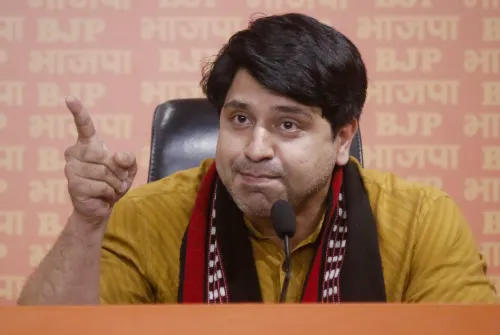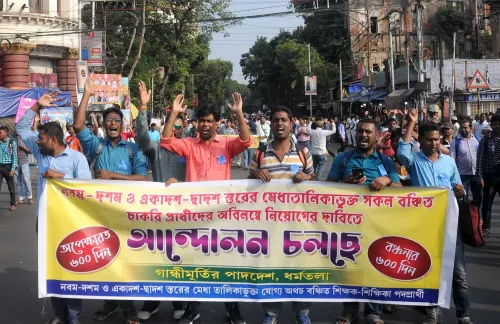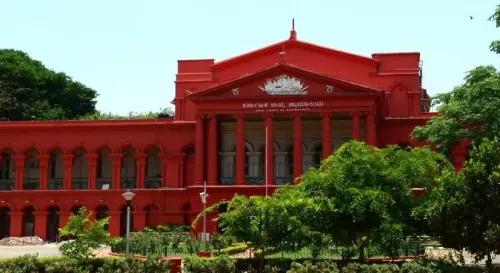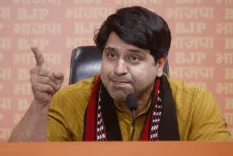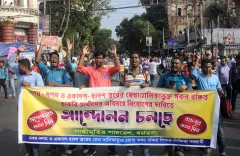What Changes Are Happening in MP's Political Landscape?

Synopsis
Key Takeaways
- Ministerial roles are being reassigned in Madhya Pradesh.
- Controversial remarks by a key minister have sparked changes.
- Gautam Tetwal now oversees Barwani and Ujjain.
- Inder Singh Parmar takes charge of Damoh while continuing in Panna.
- The High Court's involvement highlights the seriousness of the issue.
Bhopal, May 14 (NationPress) The currents of change are sweeping through the governance of Madhya Pradesh, leading to a notable reshuffling of ministerial roles across several districts.
The political atmosphere, already charged with controversy, has become even more tumultuous following controversial remarks by Tribal Affairs Minister Vijay Shah directed at esteemed military figure Colonel Sofiya Qureshi.
In light of the recent turmoil, the General Administration Department issued a formal order on Wednesday, implementing a calculated reassignment of district leadership.
Previously managed by Higher Education, Technical Education, and Skill Development Minister Inder Singh Parmar, the administration of Barwani district is now under the guidance of Gautam Tetwal.
Tetwal, who currently holds the position of Minister of State (Independent Charge) for Skill Development and Employment, will also continue to oversee Ujjain, a district that holds significant importance as the political stronghold of Chief Minister Mohan Yadav.
Consequently, Tetwal's role now encompasses two vital regions.
On the other hand, Parmar, who has been relieved of his duties in Barwani, takes on new responsibilities in the Damoh district while still supervising Panna.
This ministerial reshuffle follows the political exit of Ramniwas Rawat, who lost his bid in the assembly elections, relinquishing control over both Mandla and Damoh districts.
With his resignation formally accepted on December 5, his vacant roles had remained unfilled for six months. The administrative gap is now addressed, with Dilip Jaiswal appointed as the new head of Mandla.
The reorganization of district leadership raises questions about the potential political consequences, especially concerning Parmar's new assignment.
As the governance landscape evolves, new alliances are forming, illuminating the future of regional administration. Meanwhile, the Madhya Pradesh High Court has taken note of the minister's remarks and mandated the state to file an FIR (First Information Report) against him promptly, warning that failure to do so would be regarded as contempt of court.

